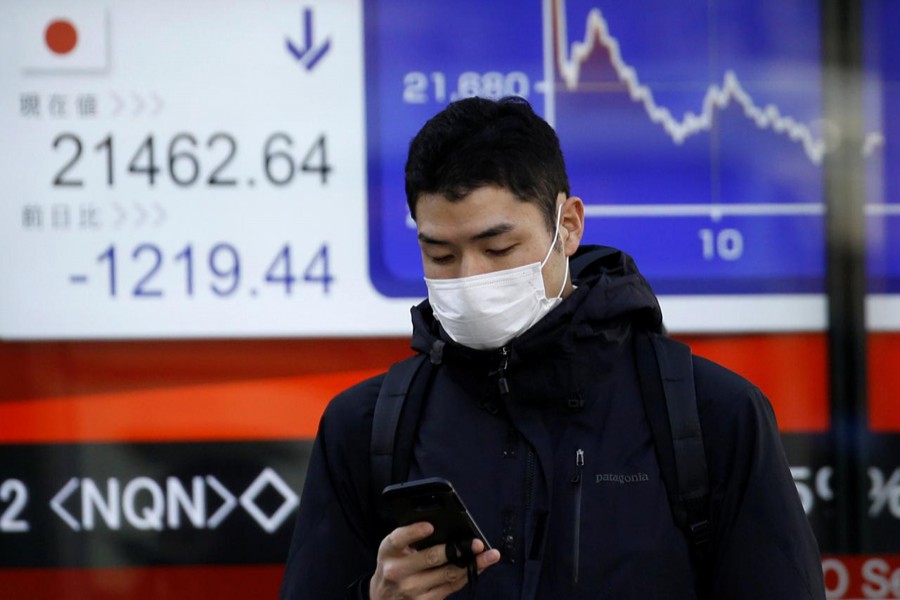Hong Kong stocks fell the most in three weeks on Friday, bringing the week’s loss to over 2 per cent, as concerns of a global trade war hit already shaky confidence due to prospects of a faster pace of US monetary tightening.
While in China on Friday stocks kept falling, weighed down by steel and aluminium makers after US President Donald Trump announced hefty tariffs on import of the metals, sparking concerns of a global trade war.
According to Shanghai Newsroom report, Hang Seng index ends down 1.5 per cent. China Enterprises index HSCE falls 1.8 per cent, HSI financial sector sub-index is 1.7 per cent lower, financial sector was 1.75 per cent lower as well while property sector dipped 1 per cent. In addition, major Chinese steelmaker Angang Steel fell over 2 per cent, Maanshan Iron lost nearly 5 per cent while Aluminum Corp of China was down 2.6 per cent.
In China, Investors were also cautious ahead of next week’s National People’s Congress (NPC) gathering in Beijing, and are increasingly concerned about the risks of faster US interest rate hikes.
The blue-chip CSI300 index fell 0.8 per cent to 4,016.46 points, while the Shanghai Composite Index lost 0.6 per cent to 3,254.53.
For the week, CSI300 was down 1.3 per cent, while SSEC declined 1 per cent.
Major steel maker Baoshan Iron & Steel fell 3.9 per cent, while Aluminium Corp of China was 2 per cent lower.
Though China exports relatively little steel to the United States, it is firmly in the crosshairs of the Trump administration on a number of other issues ranging from tinfoil to intellectual property rights.
Chinese investors had already been squaring positions ahead of the NPC meeting next week, at which key economic targets and policy objectives will be announced.
Oxford Economics expects the government will announce further tightening of financial and regulatory policies for 2018, while targeting modestly slower growth of credit and GDP, reports Reuters.
Frank Benzimra, Hong Kong-based head of Asia Equity Strategy at Societe Generale, said there are two key issues on investors’ minds: the high valuation of some large segments of the Chinese market, such as consumer discretionary and technology, as well the financial deleveraging execution risk.
In addition, “there has always been a policy risk in China whether we invest in private firms or SOEs,” he said.
Beijing has increased scrutiny on several acquisitive Chinese private conglomerates. The government took over Anbang last week, and is investigating chairman of CEFC China Energy, a source said on Thursday.
Even as CEFC said it was “operating normally”, shares in affiliated CEFC Anhui International Holding slumped 3.88 per cent on Friday, extending Thursday’s drop.


